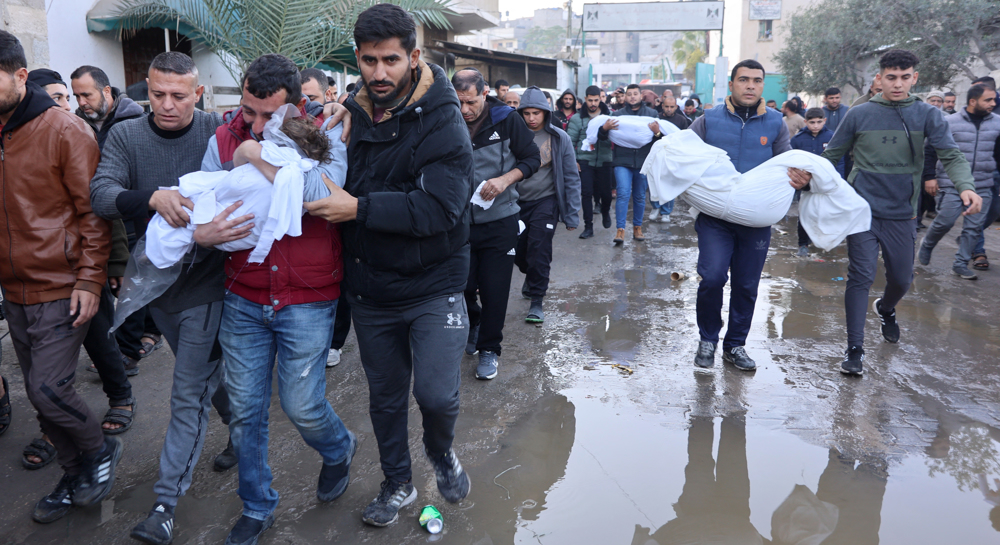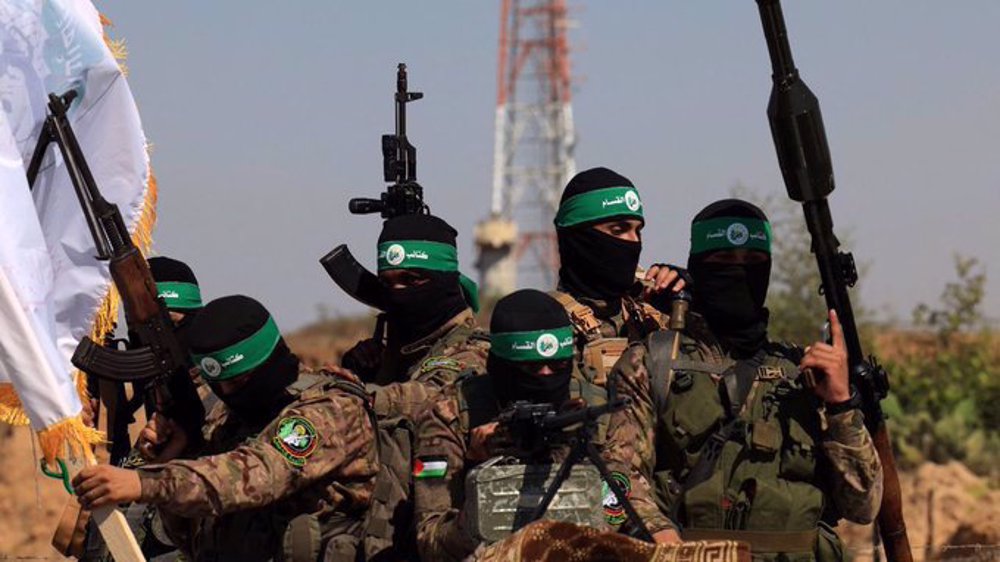Palestinian Authority cuts salaries of Gaza-based civil servants by 20 percent
The Palestinian Authority (PA), led by President Mahmoud Abbas, has reduced salaries for its staff in the besieged Gaza Strip by 20 percent, enraging civil servants in the impoverished sliver as the holy month of Ramadan nears.
The PA implemented the controversial measure on Thursday and also failed to make up for skipping the previous month’s pay, angering some 38,000 civil servants in Gaza as they were shocked when they learned of the fresh reduction upon arriving at their banks on payday.
Most of the staff had hoped that they would receive paychecks for two months, but instead they just received a reduced monthly income for a single month, without any explanation.
“If they’ve failed to resolve this issue through dialogue, it can’t be resolved by (using) the poor employee,” said Eyad Kalloub, a 40-year-old civil servant, as he queued at his bank.
This is while the PA staff in the Israeli-occupied West Bank received their salaries in full.
Back in April last year, Abbas cut his Gaza-based staff’s salaries by 30 percent. He also reduced the number of his staff in the blockaded enclave, run by the Palestinian Hamas resistance movement, from 60,000 in 2017, by ordering early retirement for almost a third of the civil servants.
Fatah, chaired by Abbas, and Hamas are at loggerheads over a number of issues, which ultimately led to a split in the PA in 2007. A year earlier, Hamas had won parliamentary elections and since June 2007 it has been ruling over the Gaza Strip.
After months of efforts, however, a reconciliation deal was signed between the two sides in the Egyptian capital Cairo in October last year in an attempt to end a decade-long split that has crippled Palestinian statehood aspirations.
Under the reconciliation agreement, the Fatah-led Palestinian Authority was to take full control of the Gaza Strip by December 1 last year, and Hamas was to join the PA to form a unity government.
Fatah, in return, pledged to lift an array of punitive sanctions that it imposed on Hamas earlier last year.
The PA has been accused of exerting indirect pressure on Hamas to relinquish control of the enclave by cutting the salaries, which would shrink tax revenue in Gaza, and by reducing electricity payments to the enclave.
The Gaza Strip has been under an Israeli siege since June 2007. The blockade has caused a decline in living standards as well as unprecedented unemployment and poverty there.
Israel has also launched several wars on the Palestinian sliver, the last of which began in early July 2014. The last Israeli military aggression, which ended on August 26, 2014, killed nearly 2,200 Palestinians. Over 11,100 others were also wounded in the war.
Leader: Iran has no proxy forces in West Asia
US fighter aircraft shot down ‘in friendly fire’ amid aggression on Yemen
Yemeni FM: Israel’s sponsors accountable for ongoing aggression on Sana’a
Eight Palestinians killed as Israel attacks Gaza school, hospitals
VIDEO | Rome, Milan host new protests in solidarity with Palestinians
Dec. 21: ‘Axis of Resistance’ operations against Israeli occupation
Spain jurists demand ties with Israel ties be cut
VIDEO | Press TV's news headlines














 This makes it easy to access the Press TV website
This makes it easy to access the Press TV website